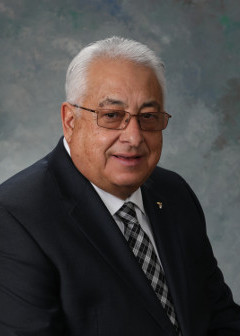Legislation Detail
SB 183 ELECTRIC & HYBRID VEHICLE REGISTRATION FEES
Actions: [2] SCC/STBTC/SFC-SCC [3]germane-STBTC
Scheduled: Not Scheduled
Senate Bill 183 (SB 183) requires an additional registration fee for electric and plug-in hybrid electric vehicles and provides that the additional registration fees be distributed to the State Road Fund and the Transportation Project FundLegislation Overview:
Senate Bill 183 (SB 183) creates a new section of the Motor Vehicle Code (Section 66-6-1 et seq NMSA 1978) that requires an additional registration fee for electric and plug-in hybrid electric vehicles ranging from one hundred twenty dollars ($120) to sixty dollars ($60) depending on the vehicle’s weight. It defines electric vehicle and plug-in hybrid electric vehicle. SB 183 modifies Section 66-6-23 NMSA 1978 by directing that an amount equal to seventy-seven percent of the fees collected pursuant to Section 1 of this 2024 act will be distributed to the State Road Fund (SRF) and an amount equal to twenty-three percent of the fees collected pursuant to Section 1 of this 2024 act will be distributed to the Transportation Project Fund (TPF). SB 183 would be effective 1 January 2025.Current Law:
Electric and plug-in hybrid electric vehicles do not contribute as much to road maintenance as gasoline-fueled vehicles since this cost is paid for in large part by taxes on gasoline. The New Mexico Department of Transportation (DOT) and the State Transportation Commission (STC) are charged with maintaining the state’s transportation infrastructure, including 30 thousand lane miles of interstate corridors and U.S. and state highways. To maintain this infrastructure, the DOT relies on two main sources of funding: the State Road Fund (SRF) and transfers from the Federal Highway Administration According to the Legislative Finance Committee’s (LFC) webpage, the SRF is generally used for highway maintenance while federal funds are used mostly for construction. The SRF is composed of revenue from the state tax on gasoline and diesel fuel (about 45 percent of total revenue); taxes and fees on commercial trucking (20 percent); vehicle sales tax and registration fees (30 percent); and other minor fees. State estimates indicate the road fund would have to grow by $270 million to maintain roads in satisfactory condition The TPF is a state funded program with annual application cycles to which local and tribal governments may apply. NMDOT issues the Call-for-Projects, which provides eligible project requirements, project prioritization criteria, and application package requirements. The local match on these projects is five percent. https://www.nmlegis.gov/Entity/LFC/Documents/Finance_Facts/finance%20facts%20highway%20funding.pdf https://www.snmedd.com/roadway-program/
